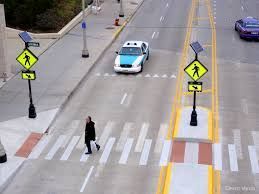How to Stay Safe Around Town This Summer

Another great article in the June 2023 AARP Bulletin discusses ways to stay safe this summer. It covers ways to stay safe around the house, around town, when you travel and outdoors. This blog will cover ways to stay safe around town. Each section was written by different experts, so I will highlight some of the bullet points for you here.
Ryan Pietzsch discusses distracted drivers, and this is a big one, I think. He says, there’s no way to tell if the drivers around you are texting or eating lunch or both. He suggests using the “what if" strategy to stay safe. As you are driving, ask yourself, “What if that car runs the red light?” or “What if the driver ahead of me is reading a text?” Doing this allows you to respond to the situation and choose the most appropriate defensive action.
William Van Tassel states that preventing road rage starts with prevention, not provocation. Drive with common courtesy. Let others merge or change lanes, drive at a speed comparable to those around you, use your turn signals and don’t tailgate. If you find yourself dealing with a hostile or aggressive driver, don’t engage. Keep driving calmly. If it escalates, get to a public place, and stay in your car. If you feel threatened, call 911.
Michael Flaum discusses what to do if you see a stranger behaving erratically. He says to remain calm. Move away if you want and are able to do so casually. He also states that if you, the person, or someone else is in immediate danger, call 911, or better, 988. 988 is a new national mental health emergency number. If you call 911, make sure you tell dispatch you are dealing with a mental health emergency and ask for a mental health support response team.
Pam Shadel Fischer talks about getting hit by a car and states that more than three-quarters of pedestrian fatalities happened after dark, compared with less than a quarter during daylight, dawn, or dusk. When crossing the street, use only designated crosswalks, which often have better lighting to make you more visible to drivers. Pam says if you must cross somewhere there is no crosswalk, use your cellphone’s flashlight. Shine it ahead of you to make yourself more visible to drivers.
As stated, I just pointed out the bullet points, to read the entire sections, pick up the AARP Bulletin. The next blog will cover ways to stay safe when you travel. I hope you find some valuable tips in my blogs to keep you safe!




